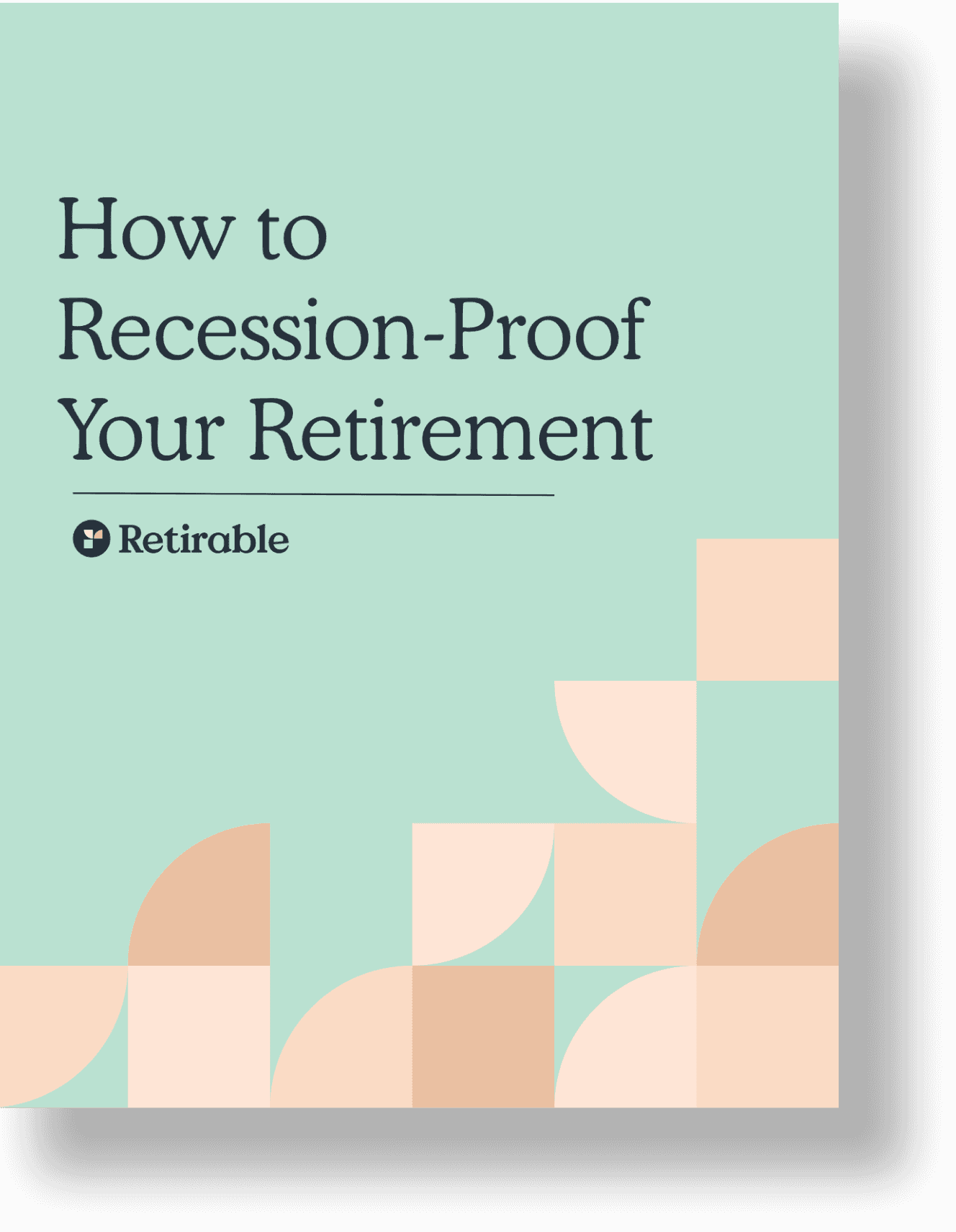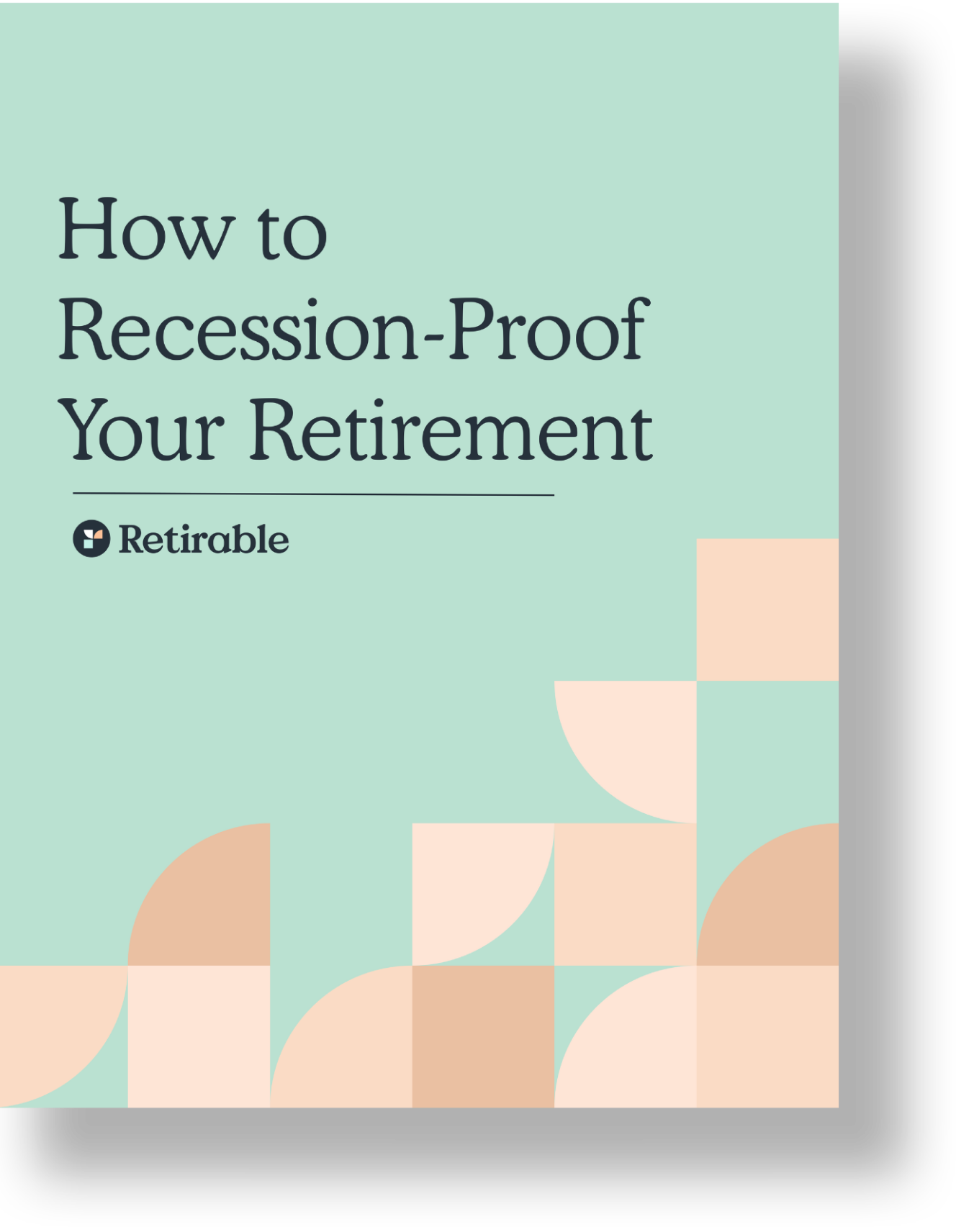Lifestyle
While the exact number of years you will spend in retirement is a guess, there are some ways to estimate it. Hone in on a ballpark figure that will make planning for retirement more of a science than a guessing game.

R. Tyler End, CFP®
•
Published August 30th, 2024
•
Updated January 15th, 2025
Table of Contents
Key Takeaways
Your life expectancy depends on a variety of factors, including your lifestyle, socioeconomic status, and gender.
Most life expectancy calculators are based on longevity data collected based on average age of death.
In addition to determining your life expectancy, you’ll also need to factor in your expected date of retirement.
According to a study from the TIAA Institute, the average 60-year-old American will live between 84 and 87 years, with women averaging slightly longer lifespans. That same study noted that many Americans struggle to gauge how long they will be retired. While the exact number of years you will spend in retirement is a guess, there are some ways to estimate it. Hone in on a ballpark figure that will make planning for retirement more of a science than a guessing game.
How Long Will Your Retirement Really Last?
Planning for retirement longevity is a critical process. It ensures that you won’t run out of money while retired and also helps to alleviate any anxiety that you will run out of money as you work on your retirement savings. If, for instance, you don’t do the proper planning, you might spend your golden years fretting about the money you have and your life expectancy rather than fully enjoying this important time in your life. If you run out of money, you might need to return to work or find another income stream, which could put you in an uncomfortable position as a senior citizen.
If you retire at 65 and live to 100, you’ll have to support yourself with 35 years of income. Social Security makes up only 33 percent of the income of the elderly, meaning you’ll need enough money to supplement that monthly check you’ll get from the Social Security Administration—typically with a 401(k) or other savings account.
100 years, of course, is much higher than the average life expectancy, but saving for a longer life means you won’t have to worry as much about your money lasting you for your entire retirement.
Factors Affecting Retirement Longevity and Life Expectancy
A variety of factors go into any life expectancy test. Here are some of the things that determine how long you’ll live:
- Gender and marital status: Women generally live longer than men, and married people tend to live longer than their single counterparts.
- Genetics: Your family health history and longevity determine how long you live.
- Location: Life expectancies vary depending on where you live and whether you live in a rural or urban area.
- Socioeconomic status: Your income and socioeconomic status play a role in your longevity for various reasons.
- Lifestyle: From what you eat to how active you are to what you do for a living, your daily choices can add up over time to increase or decrease your lifespan.
The best life expectancy calculator won’t factor in unexpected events like car accidents and deadly viruses. However, for the most part, you can get a feel for how long you’ll likely need your retirement savings to stretch. There are a few ways to calculate your life expectancy, and it’s important to weigh all the factors and data to reach that important ballpark number.
Chance Of Living 10 More Years By Current Age (65-100)
One of the best resources is the Social Security life expectancy calculator, which comes in the form of actuarial life tables. You’ll notice from these that women have a longer life expectancy than men. A male born in 2020 has a life expectancy of 74.12 years, while a female has a life expectancy of 79.78 years.
You can also use this table as a life expectancy calculator based on current age. If you were 60 in 2020, you had a remaining life expectancy of 20.47 years if you’re male and 23.67 years if you’re female. Another notable column from the chart is the death probability column, which calculates your likelihood of dying in the next year.
Critical Factors Affecting Retirement Duration
A number of factors affect your retirement duration; while the average person in the US is retired for about 20 years, your retirement length could be longer or shorter, and it’s wise to plan for every possible scenario.
Health and Lifestyle
The healthier you are, the longer you will likely be alive, which could mean more years to spend in retirement. Studies show that a healthy 65-year-old man with no chronic conditions has an almost 20% chance of living to age 95 or longer, but that chance gets reduced to 17.5% if that same man has high blood pressure, 15.8% if he has cardiovascular disease and 12.5% for high cholesterol.
While a person with a chronic condition might need less money for retirement as their life expectancy is shorter, they will probably need a significant amount for long-term medical care and specialists, which is something to consider when planning their retirement duration.
In addition, because medical advances have come so far, your lifespan could be longer than you expect; many treatments exist now that didn’t before, helping seniors manage pre-existing conditions and live comfortable lives.
Another factor to consider, related to the above, is access to healthcare. Suppose you wish to live a long time and know you have medical conditions that require special care. In that case, you should consider retiring to a location with excellent hospitals and medical specialists.
Being in good health and having access to excellent medical care means you are likely to live a long time; if this is the case, you might plan to spend many years—possibly 20 or more—in retirement.
Financial Stability
Your ability to retire—and stay retired—largely depends on how much money you have saved. Whether you have an IRA or a 401(k), save enough money to carry you from the day you retire until the day you die. This means calculating the cost of your desired lifestyle in retirement: if you wish to live somewhere expensive, such as California or Hawaii, you’ll need more money; if you can downsize and opt to live somewhere more reasonably priced, such as Mexico or a southern state, you could get by with less. In addition, you’ll need to factor in your current age and the potential impact of inflation on your savings in the years leading up to and after you choose to retire.
Discuss your goals, current situation, and investments with a Certified Financial Planner (CFP®) to understand the big picture and what steps you can take to ensure you have enough money.
If you run out of money during retirement, you will likely need to return to work as a senior citizen.
Retirement Age
In addition to a life expectancy calculator, it’s important to look at the year you’ll retire. The full retirement age might be 67, but the average US retirement age is 63, according to the Census Bureau. If you retire at 63 and take early Social Security, you’ll receive a lower payout over time. Still, factors like pensions, 401(k) and IRA savings, and post-retirement work will all play into how much money you’ll have to last the remainder of your life.
It’s also important to note that declines in retirement age may be reversing. The Census Bureau notes that labor workforce participation has increased among older Americans. If you push your retirement to age 68 or 70, you must factor that into your retirement planning. Subtract your planned retirement age from your estimated life expectancy and divide by your total retirement savings to see how much you’ll have each year, then set plenty aside if you live longer than you expect.
How to Plan for a Long Retirement
Whether you wish to retire early or believe you will live a long time, planning for a long retirement will take dedication and time. You’ll want to ensure you’re maximizing your savings—ideally with the help of a Certified Financial Planner—and budget for basic needs and unexpected costs.
Savings and Investments
The first step to saving for a long retirement is to save as much as possible as quickly as possible. The more money you have saved earlier in life, the more time your money will have to earn interest.
Plan to save at least 10 to 15% of your salary for retirement—ideally more. If saving this amount is a struggle, review your spending habits and look at areas where you can cut back (dining out, travel) to put more money into your retirement accounts.
If you are at least 50 years old, you can make “catch-up contributions” to your retirement accounts, which allow you to put more money into your IRA or 401(k).
If you can max out your 401(k) contributions, consider opening a second retirement account, such as a traditional or Roth IRA. Diversifying your investment vehicles can help safeguard your savings against inflation and market downturns.
Budgeting for Retirement
Instead of worrying whether or not you will run out of money during retirement, create a budget to alleviate your anxiety and ensure you will be comfortable during your golden years. To develop a retirement budget, follow these steps:
- Calculate your retirement income goal
- Determine your expected annual spending
- Adjust expenses that are likely to change—i.e., medical costs might go up, but housing might go down if you pay off your mortgage or move somewhere less expensive
- Estimate your retirement income from your savings
- Draft a spending plan based on your estimated income and annual spending
- Test out your budget
Healthcare Planning
Healthcare and housing are usually two of the most significant expenses for those in retirement. According to the Fidelity Retiree Healthcare Cost Estimate, a typical couple age 65 who retired in 2023 will likely spend $315,000 on long-term medical expenses—and this doesn’t even include long-term care, medications, or dental work.
As you begin to plan and budget for retirement, it’s crucial that you understand what Medicare does and does not cover. It does not, for instance, cover long-term care, dental work, or vision. You should budget more for these services or invest in long-term care insurance. These policies can pay a monthly benefit towards long-term care for a set amount of time (typically two to five years) or the rest of your life.
There are standalone dental and vision plans that retirees can purchase.
Retirement Withdrawal Strategies
There are dozens of withdrawal strategies; you should talk to a trusted financial advisor to pick the right one. You may need several methods to find one suited to your retirement goals and savings. Below, you can learn about three of the most popular retirement withdrawal strategies that could help you stretch your savings for as long as you need.
Protect yourself from scams and fraud.
Every Retirable client is protected with $1M in identity theft insurance.The 4% Rule
The 4% rule is a retirement planning strategy popularized by financial planner William Benger. In 1994, Benger proposed that retirees only take 4% of their savings out in the first year of retirement. Retirees should take out that same dollar amount plus an amount each successive year to account for inflation. For example: With a savings of $1 million, you would withdraw $40,000 in year one In year two, you would take $40,000 plus an additional percentage to cover inflation (usually 1-2%)
Benger’s strategy posits that withdrawing just 4% each year will ensure you have your nest egg for 30 years or longer. Many financial analysts and economists have recently suggested that this theory would not work in the current volatile market; some have suggested that 3% is a better amount. Others think that 4% is too conservative and rigid and that 5% is optimal.
For some retirees, the benefit of the 4% rule is that it is easy to follow.
Dynamic Withdrawals
The dynamic withdrawal, or dynamic spending approach, is a withdrawal strategy that allows you to adjust your withdrawals depending on the market and your specific needs. Sometimes referred to as the “Guardrails” strategy, this approach begins with a target withdrawal rate—the money you plan to take from your investments each year.
You then set a high and low guardrail, which limits how much or how little you can withdraw. If your withdrawal rate exceeds the high guardrail, you reduce the amount for the following year. Using this strategy, retirees should follow the market closely so they only withdraw a higher amount when returns are up.
This method is generally best for those with significant savings and high net worth, as it does not guarantee a steady income stream if the market is in a downturn. A flexible withdrawal plan can allow you to make room for years with bigger expenses—such as when planning travel or events.
Income Floor Strategy
Using the income floor strategy, you would first determine the total dollar amount you need for essential expenses—housing, food, utility bills—and ensure that you cover those expenses with a source of guaranteed income, such as Social Security.
Your discretionary expenses (travel, clothing) are then funded from your invested savings. This strategy helps you control how long your money lasts by ensuring you aren’t forced to sell stocks when the market is in a downturn.
Tools and Resources for Retirement Planning
If you’re concerned about retirement planning, know that tons of tools and resources are available to make it easier.
- Retirement calculators: Retirement calculators, such as this one from Retirable, allow you to input your current savings and age to predict how much monthly income you will have during retirement
- Budgeting apps: Many apps can help you calculate and monitor your spending; knowing what you spend now can help you cut back to save more and get a picture of how you might spend in the future
- Financial planners: A Certified Financial Planner can not only help you review your spending habits and make better choices to save additional funds each month, but they can monitor your investments to ensure they match your risk tolerance and goals for retirement
Common Mistakes to Avoid
Avoid these common pitfalls when estimating your retirement longevity and your life expectancy.
Underestimating life expectancy: By making assumptions about your lifespan and believing you’ll die sooner than you actually will, you might not budget the right amount for retirement. Being off by even a few years can throw a lousy budget into disarray. Be sure to plan to live longer rather than shorter so you don’t run out of money.
Failing to adjust investment strategies: As you get closer to retirement, your financial planner might suggest more cautious investments to ensure that the money you have saved is secure. Your investment strategy will likely change several times over the years—you’ll want to diversify what you invest in and vary the risk associated with those investments to reap the most significant benefits and returns.
Neglecting healthcare and long-term care planning: Healthcare is one of the most significant expenses for retirees. Housing and health will eat up most of your budget, so save enough to cover each of these costs—with money to spare. It’s important not to rely too much on Medicare, which is very limited in what it covers. Most retirees spend $12,000 or more during their first year of retirement.
Frequently Asked Questions
You asked. We answered.
How can I estimate the length of my retirement?
There’s no way to know the exact length of your retirement; many factors go into this. When you retire, how healthy you are, your lifestyle, and other considerations are at play. Most people in the US are retired for about 20 years, but that could be longer or shorter, depending on the factors above and your financial situation.
What factors affect the longevity of my retirement savings?
Many factors affect the longevity of your retirement savings. Some core considerations include inflation, market ups and downs, overall investment risk, and income tax. Unexpected costs can also cut into your savings; for instance, a severe medical situation arises. Given these risks, building retirement savings that will cover your basic expenses and any emergencies is important.
How can I make my retirement savings last longer?
The easiest way to extend the life of your retirement savings is to downsize and choose a more frugal lifestyle. This might include selling your home and moving to a more affordable location, reducing travel, cooking more and eating out less, and making other lifestyle adjustments. In addition, it’s always best to discuss your situation with a financial advisor.
What should I do if I’m worried about running out of money in retirement?
There are three things to do to alleviate anxiety around your retirement savings balance: save more, reduce spending, and budget. By saving more than 15% of your salary each year, you should be on track to have enough for your retirement. Consider reducing your spending to meet that savings goal, and then plan to live a less expensive lifestyle in retirement. Finally, be sure to make a retirement budget so you have a clearer picture of how much you will spend each month—this will help you save the right amount.
Can I adjust my retirement plan if market conditions change?
There are many ways to adjust your retirement plan if the market takes a downturn, but that might not be the wisest decision if retirement is still a long way off, as the market should have time to re-balance itself and get back on track. The best way to know whether or not to rollover your 401(k) into an IRA (which has more investment options) or make other big moves is to discuss the situation with a trusted financial advisor.
Share this advice

Tyler is a Certified Financial Planner® and CEO & Co-Founder at Retirable, the retirement peace of mind platform. Tyler has nearly 15 years of experience at leading companies in the wealth management and insurance industries. Before Retirable, Tyler worked as Head of Operations Expansion at PolicyGenius, expanding the company’s reach into new products — turning PolicyGenius into an industry-leading disability and P&C insurance distributor. Before working at PolicyGenius, Tyler worked as Wealth Management Advisor at prominent financial services organizations.
As an advisor, Tyler played an integral role in helping clients define goals, achieve financial independence and retire with peace of mind. Through this work, Tyler has helped hundreds of thousands of people get the financial planning and insurance advice they need to succeed. Since founding Retirable, Tyler’s innovative approach to retirement planning has been featured in publications such as Forbes, Fortune, U.S. News & World Report, and more.
Decumulation
Paycheck
Lifestyle Planning
Income Sources
Strategies
Taxes
Risks
Share this advice

Tyler is a Certified Financial Planner® and CEO & Co-Founder at Retirable, the retirement peace of mind platform. Tyler has nearly 15 years of experience at leading companies in the wealth management and insurance industries. Before Retirable, Tyler worked as Head of Operations Expansion at PolicyGenius, expanding the company’s reach into new products — turning PolicyGenius into an industry-leading disability and P&C insurance distributor. Before working at PolicyGenius, Tyler worked as Wealth Management Advisor at prominent financial services organizations.
As an advisor, Tyler played an integral role in helping clients define goals, achieve financial independence and retire with peace of mind. Through this work, Tyler has helped hundreds of thousands of people get the financial planning and insurance advice they need to succeed. Since founding Retirable, Tyler’s innovative approach to retirement planning has been featured in publications such as Forbes, Fortune, U.S. News & World Report, and more.
Free Retirement Consultation
Still have questions about how to properly plan for retirement? Speak with a licensed fiduciary for free.






